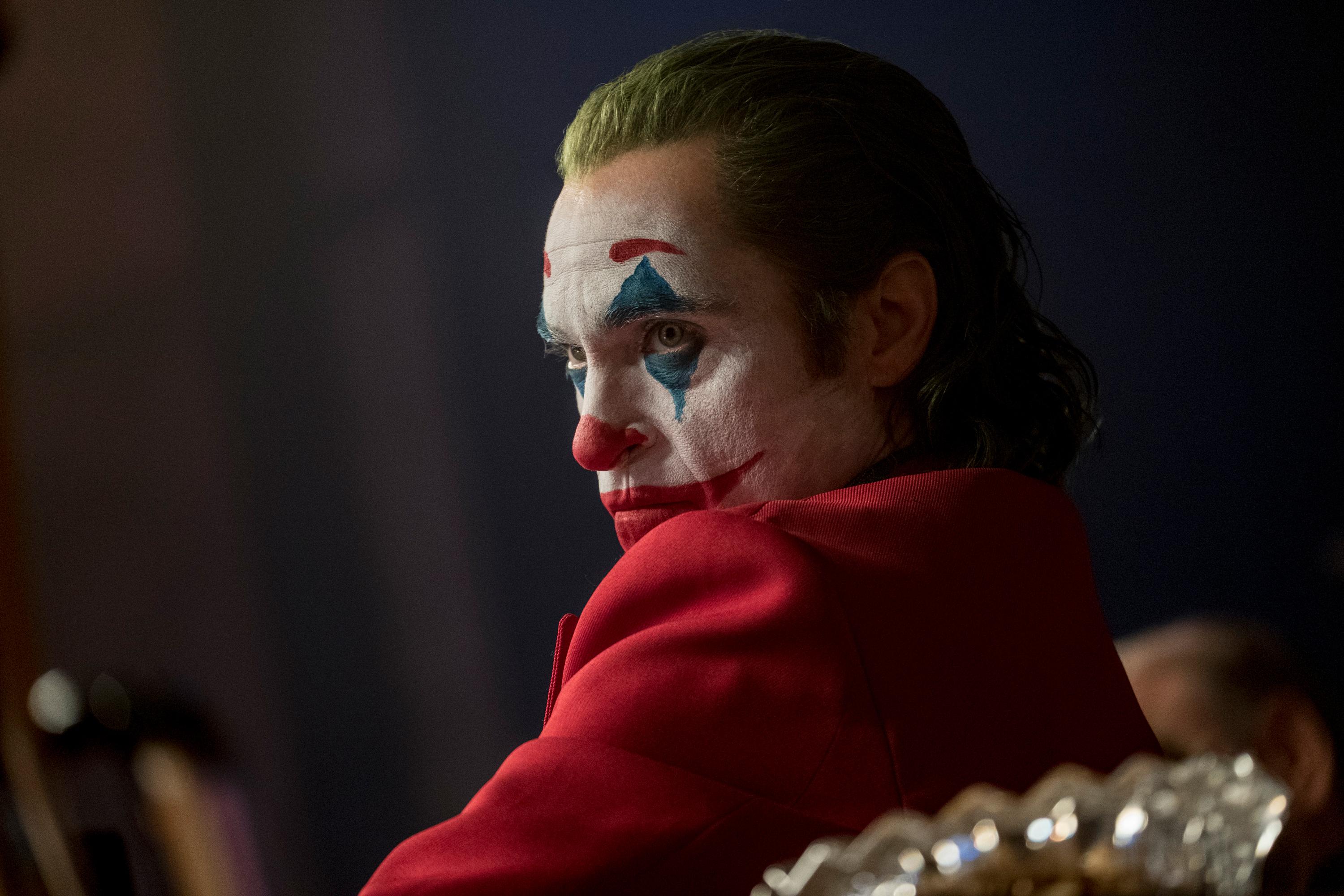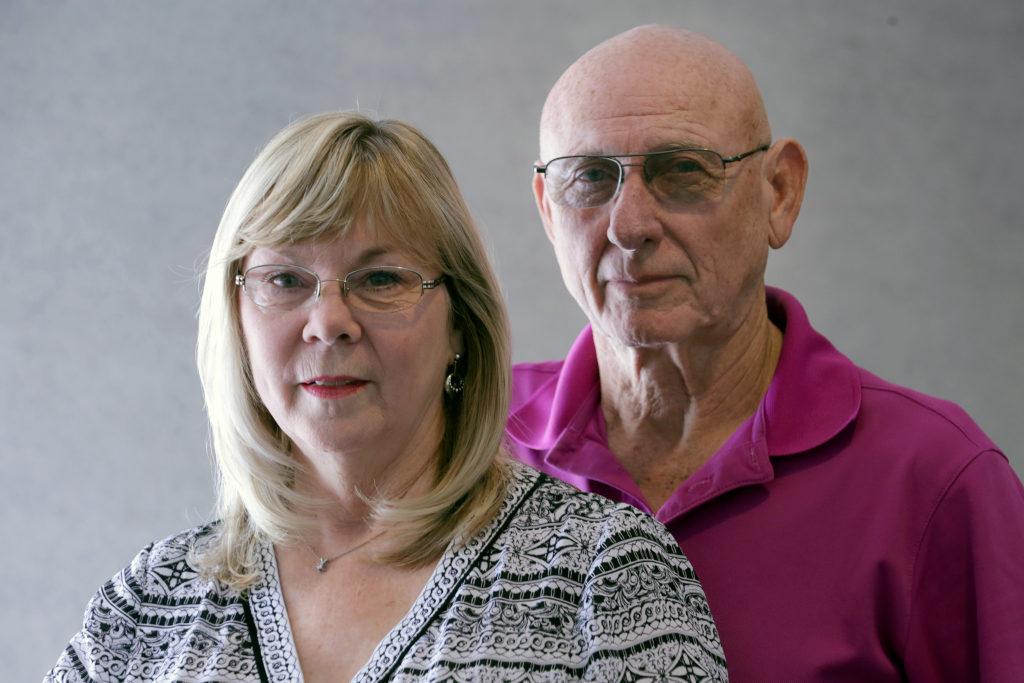
When the trailer for the new film "Joker" faded to black, Sandy and Lonnie Phillips were left deeply unsettled.
This iteration of the classic Batman villain, played by Joaquin Phoenix, reminded them of the man who killed their daughter Jessica Ghawi and 11 others in the 2012 Aurora theater shooting during a screening of "The Dark Knight Rises."
The trailer prompted the Phillips to join other friends and families of Aurora victims in writing a letter to Warner Bros. asking the studio to stand against gun violence by ending political contributions to NRA-affiliated politicians, lobbying for gun reform and contributing to survivor's funds.
"They developed this character, and it was so similar to our killer's character, that was disturbing for me," Sandy Phillips said. "But it's really not about the movie. It's a form of art. People have the right to make a movie any way they want to. But I think there's a bigger problem here when it comes to corporate responsibility, and we were asking them to just quit donating to the people that are taking NRA money and vote against bills repeatedly that could save lives."
The studio issued a statement in response saying that the film is not "an endorsement of real-world violence of any kind."
Theaters have hired extra security for screenings of "Joker," and major chains like AMC and Landmark have banned costumes and face masks. Alamo Drafthouse theaters also upped security and took pains to tell parents to not bring their kids.
The Century Theater in Aurora, the site of the shooting, will not show the movie.
The Los Angeles Times reported that a theater in Huntington Beach, California, canceled most of its Thursday screenings after police said they received a threat. No details about the nature of the threat were released.
In a statement about the movie's security risk, the FBI said: "While our standard practice is to not comment on specific intelligence products, the FBI is in touch with our law enforcement and private sector partners about the online posts. As always, we encourage the public to remain vigilant and to promptly report suspicious activity to law enforcement."
The anxiety around the film didn't stop it from scoring an October box-office record with $13.3 million earned in Thursday night showings. Warner Bros. released the figures Friday morning.
"Joker" is a slow-burn character study of how a mentally-ill, middle-aged man named Arthur Fleck becomes the Joker. When the audience drops in on his life, he's working as a clown-for-hire, living with his mother in a run-down Gotham apartment and checking in occasionally with a social worker. He has a card that he gives to people to explain that his spontaneous and painful bursts of laughter are because of a medical condition. His only joy seems to be watching the talk show host Murray Franklin (Robert De Niro) in the evenings.
Director Todd Phillips sees his film's Joker as a character that inspires empathy in the audience, if not in his own narrative.
"The truth is you see it and it's heartbreaking. And he's heartbreaking," Phillips told the AP. "And you know what happens in the movies when you have a world that lacks empathy and lacks love? You get the villain you deserve."
But Sandy Phillips, among many others, expressed concern that the film humanized a type of radicalized men that have increasingly posed a threat.
"He's very dark. He's supposedly misunderstood. It seems odd to me that they are trying to give sympathy of some sort towards a character who is so flawed and then takes the choice of being violent in our society. And that's exactly what happened in Aurora," she said.

Both Phoenix and Todd Phillips have defended the film, with the actor saying he trusts audiences to know the difference between right and wrong.
"I do think that the audience should be challenged and they should be able to know the difference between right and wrong. I don't think it's the filmmaker's responsibility to teach morality," Phoenix told the AP. "If you don't know the difference between right and wrong, then there are all sorts of things that you are going to interpret in the way that you want."
The Phillips emphasized that they don't want moviegoers to boycott the film. They do want the studio to "offset violence," Lonnie Phillips said.
"It's about making money. That's what it's really all about. So, (the studio executives) have the money. Why don't they give a portion of their profits to good causes, to things that can help survivors? That's all we're asking," he said.
So far, they've been unsatisfied by Warner Bros.'s response.
"Yes, they did give money right after the Aurora shooting and it was dispersed among the victims, after great controversy. We had a hard time getting that money. It was donated to a local charity that only gives money to other local charities, and they were not going to give us any of that money. So we had that battle to fight," Lonnie Phillips said. "Why won't they just talk to us? Why can't we talk directly, eyeball-to-eyeball, with one of their executives and find out what we can do to help them create a better image? "
"We've asked three times to to meet with them and they haven't responded," Sandy Phillips said. "So that would be the first step, wouldn't it?"








